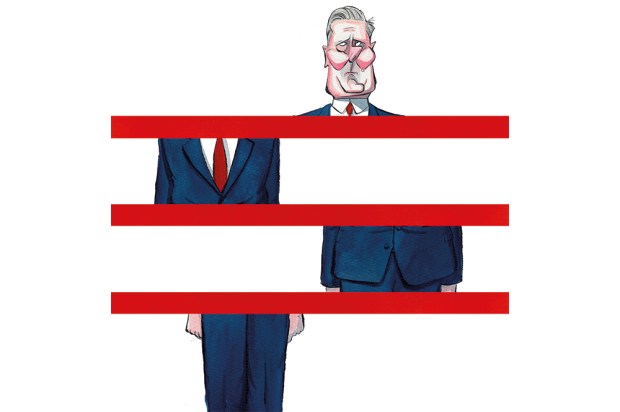I was talking to a large Silicon Valley video-conferencing firm the other day. ‘Just for interest,’ I asked, ‘what would it cost to provide your service to 65 million people?’
The reason I asked is simple. I don’t understand why it is fine for government to spend £60 billion on a railway or £20 billion on an airport, but not, say, £300 million a year providing the whole country with first-rate video-calling technology.
The argument for the UK seems especially compelling. An English-speaking country situated on the Greenwich meridian is likely to gain disproportionate business advantage from the widespread adoption of video–conferencing. If we were to negotiate a collective price for the whole of the UK to access the service, this would make the technology inordinately cheaper and hence more widespread among large and small businesses. The magical property of network effects means that (as with the telephone or fax machine, or Facebook) the value of such technologies grows with every person who adopts it.
Yes, in theory at least, these things will happen naturally over time. But you could have said the same thing to Sir Rowland Hill when he introduced the penny post. Even if the market will eventually solve such problems, it cannot hurt to accelerate the process. In the case of video-conferencing, the incidental benefits are likely to be huge: there would not only be gains in terms of simple economic efficiency, but also in terms of pollution, transport congestion, property inflation and geographic disparities in wealth (the only surefire way of being wealthy and contented in Britain is to work in London without having to live there).
Most collective goods (technically ‘public goods’), such as sewage, defence, roads, railways, postal services and the internet itself, have emerged from a mixture of public- and private-sector involvement. Yet with few exceptions (mobile phone spectrum allocation, say, or limited subsidy of rural broadband), government has not attempted, nor have technology companies much sought, to coordinate their activities. This stand-off probably arises from a mixture of neo-liberal ideology on the part of government, and an equally weird Silicon Valley dogma obsessed with producing technologies which can scale independently of any other party. It seems to me self-evident that driverless cars would be more feasible if roads and signage were designed with a common information platform which all driverless cars could ‘read’, but technologists seem obsessed with solving the problem with software alone.
True, government may be unwilling to pick winners — but sometimes, unless government can first solve the coordination problem by settling on a single standard, there is no market in which to win. And while I generally agree that people are best left free to spend their money as they wish, a mindless obsession with tax cuts overlooks the fact that public goods can be more valuable — even to the rich — than private goods.
To check that my video-conferencing theory wasn’t insane, I shared it with my friend, the Australian economist Nicholas Gruen. ‘I wrote a paper about that very subject,’ he said. ‘Nobody listened.’
You’ll find it here: As Nick explains, economics is obsessed with the free rider problem. But digital public goods are different: with digital goods there is a ‘free-rider opportunity’. Bringing more people on to a platform does not dilute its value — it increases it. Hence by making something available to all you make it more valuable to everyone. Fascinatingly, he suggests the government should pay us all to sequence our own genomes, provided we confidentially share the results.
Got something to add? Join the discussion and comment below.
Get 10 issues for just $10
Subscribe to The Spectator Australia today for the next 10 magazine issues, plus full online access, for just $10.





















Comments
Don't miss out
Join the conversation with other Spectator Australia readers. Subscribe to leave a comment.
SUBSCRIBEAlready a subscriber? Log in